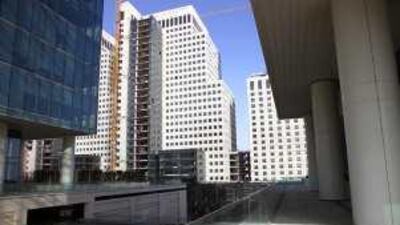If you thought the troubles in Dubai's property market would be cleared up overnight if Dubai World successfully restructured its debt, you may want to think again. A proposal for creditors last week from Dubai World and its heavily indebted property arm Nakheel was a long-awaited bit of good news, triggering a rally in banking and property stocks.
Investors were hoping a successful restructuring would prove to be a catalyst for recovery in the property market, which had been the main driver of Dubai's growth since the sector was opened for foreign ownership in 2002. But the Swiss lender UBS argued in a report released yesterday that the chances of a quick recovery were minimal. "Experience suggests that recessions related to real estate problems tend to be protracted. Dubai will not be an exception," wrote Saud Masud, the head of Middle East research at UBS. "Negative forces still have a lot of momentum and are likely to imply challenges over the next 18 to 24 months."
House prices in some parts of the emirate have already halved from their mid-2008 peak and UBS expects them to slide another 30 per cent from current levels. The bank estimates oversupply in the residential and commercial property segments could reach 50 per cent in the next two years. Officially, property and construction sectors contribute about a quarter of Dubai's total GDP, but both have a significant spillover effect in other sectors of the economy. As a result, Dubai's recovery as a whole is very much tied to a resurgence in those sectors.
Mr Masud said full recovery in the emirate would be "a lengthy process that might take several years". Recent reports that more Dubai conglomerates may seek restructuring only highlight the need for more economic diversification. "As Dubai seeks to reattract investor capital, above all from private sources, we would hope to see the emirate diversify its growth drivers," Mr Masud said. skhan@thenational.ae


